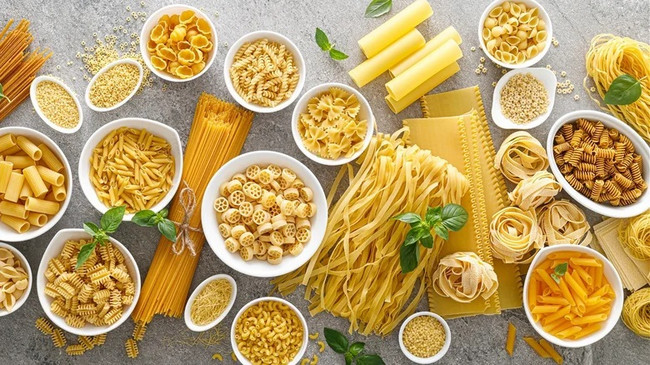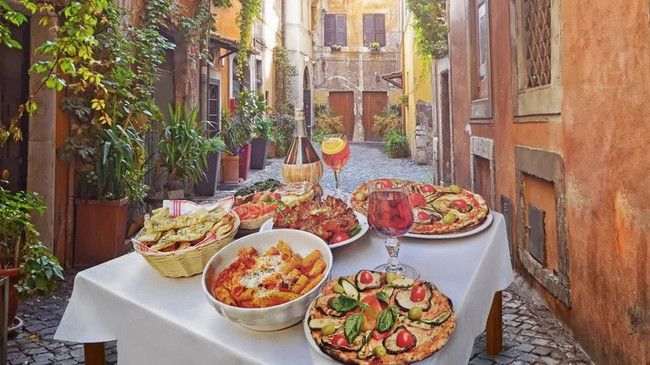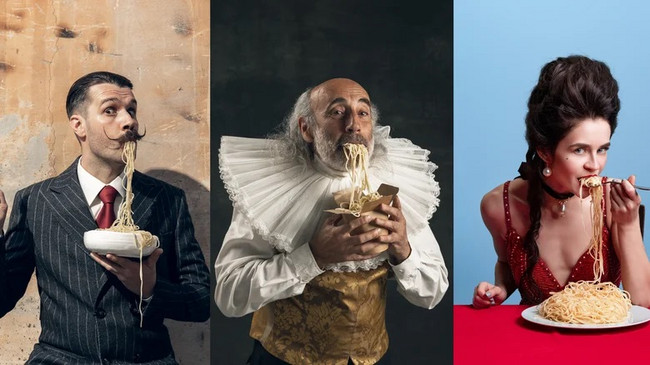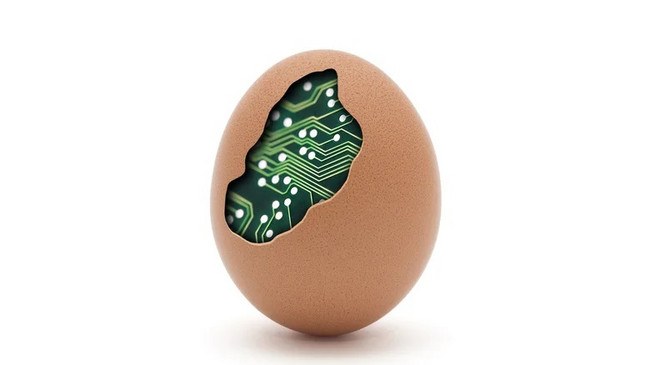✕



✕

Tag:pasta Italian politicians outlaw 2023-01-18 10:09

Sea Wave/Shutterstock
Before there were gluten-free diets and molecular gastronomy, there was Filippo Tommaso Marinetti.
Marinetti is famous for being a man of many contradictions and strong aesthetic convictions. One of the founders of Italian Futurism, he is infamous for having argued that pasta should be totally eliminated from the Italian diet (per Engelsberg Ideas). This Italian Nationalist (whose Futurist party was eventually absorbed into the Fascist party) went so far as to push for an outright ban on this filling and delicious Italian staple. Marinetti was weird, but not crazy, and an important figure in his day (via Art in Society). What would possess a man — an Italian man at that — to advocate for such an extreme position?
His position was certainly extreme: The "Manifesto of Futurist Cuisine," which Marinetti co-authored with Luigi Colombo in 1930, has an entire section devoted to the abolition of pasta, which they refer to as "an absurd Italian gastronomic religion" (Per "I manifesti futuristi: dal 1919 alla fine del movimento").
Why so sour about spaghetti?

natalia_maroz/Shutterstock
To make sense of Filippo Tommaso Marinetti's apparent insanity regarding pasta, it helps to understand the backstory. To say pasta is a major part of Italian cuisine is an understatement. Conventional legend has it that pasta was first brought to Italy by Marco Polo after his visits to China in 1295, but that seems unlikely: Pasta's roots in the boot run very deep (per La Cucina Italiana). There's evidence for something similar to lasagne already existing in ancient Etruscan times, but pasta's true ancestor was probably a food made in 9th century Arab Sicily, which moved its way decisively up the peninsula. But however it started, Italians everywhere took the concept and ran with it, developing a host of different pasta shapes and sauces that have become synonymous with the national cuisine.
Both fresh and dried forms of pasta go way back. Dried pasta was commonly brought on boats as early as 1300, and by the time the 19th century rolled around, pasta had a wider reach than ever (via DeLallo). Its accessibility and affordability made it a favorite throughout the peninsula. That combination has made pasta the ubiquitous and beloved ingredient it is today, and a shining symbol of Italian tradition.
Fighting the Pasta Power

Master1305/Shutterstock
Its accessible and well-regarded status made pasta a perfect target for anyone who wanted to challenge the status quo.
Filippo Tommaso Marinetti, who was born in Alexandria (Egypt) to Italian parents, became a leader in Italy's avant-garde "Futurist" movement (via Britannica). The Futurists took their name from their forward-thinking, future-oriented ideals and aesthetics. They shunned what they saw as Italy's romantic, conformist, and backwards past, embracing all that was shiny, new, and fast. Impatient to see the Italian nation (which had only unified in 1861) move forward, they sought out advancement in technology and industry. The Futurists wanted to shake things up, and they challenged traditional religious and civil authorities in their restless quest for modern sensibility and ideals (via The Feast).
An early Futurist document, written by Giacomo Balla and Fortunato Depero, was titled "Ricostruzione futurista dell'universo" (Futurist Reconstruction of the Universe), which, in the words of scholar Cecilia Novero, "called for a total art that would encompass all media, including everyday objects, furnishings, fashion and advertising" (via "Handbook of International Futurism").
As Futurism developed, those artistic goals went beyond external objects and included the human body as well, which they saw as capable of a new set of modern sensations and experiences. So it was inevitable that the Futurists would turn their gaze on cuisine, where bodily experiences and art forms meet on the regular.
Dining Weird

Sqback/Getty Images
Pasta was Italy's sacred cow, and so in the Futurists' eyes, it was naturally the first to go. But the Futurists also offered a host of bizarre food experiments designed to unsettle and titillate, some of which anticipate modern experiments with molecular gastronomy and multi-sensory dining. Futurists wanted food to engage all the senses, and did away with forks and knives in order to reintroduce a stronger tactile dimension to dining. There were meals where diners were asked to feel sandpaper with their left hands while eating with their right; where perfume was spritzed on them while eating; and where "Iron Chicken" was served — roasted chicken cooked with ball bearings inside (via The Feast and NowThis News).
The Futurists put their money and their food where their own mouth was: A group of Futurists actually opened a restaurant in 1931 which they called the "Taverna Santopalato" (The Holy Palate Tavern), where they served their iconoclastic dishes to patrons brave enough to attend (via Academia Barilla). The Futurists' antipathy toward pasta wasn't only a result of rebellion, however.
How about a little risotto, instead?

Katarzyna Hurova/Shutterstock
Not unlike some people today, Futurists also feared that pasta was a heavy food and weighed people down too much, which violated the vital modern principle of speed, according to Open Culture. They also saw pasta production as a national liability. The demand for pasta exceeded the nation's capacity to produce durum wheat, which meant reliance on foreign imports. As the country strove to feed itself with what it could grow on its own, pasta posed a problem. While Mussolini and the Italian government never seriously considered abolishing pasta, they did make a serious play to increase rice consumption, since rice was easily grown and presented a more sustainable farming model for the peninsula than durum wheat (via NowThis News).
As Art in Society notes, Futurism itself eventually folded into other political movements in the years leading to 1920 — the movement's strong nationalism brought them into the Italian Fascist party, so most of their ideas never got much traction.
But even if Filippo Tommaso Marinetti never got his wish, he may be getting the last laugh, as millions of Italians –- while still consuming their beloved penne, rigatoni, and spaghetti — have chosen to embrace gluten-free pasta (via Italian Traditions).
House of Lords report urges complete ban on junk food advertising
Clinical research finds daily pistachio consumption may “significantly improve eye health”
Nestlé taps diverse food trends with ready-to-prepare Asian and Mexican culinary products
USDA backs Campbell’s sustainable tomato cultivation efforts to propel “climate-smart agriculture”
Symrise bolsters regenerative farming to secure stable supply for natural ingredients
Daymer Ingredients to distribute Revyve’s egg-replacing texturizers in the UK
About Us Terms of Service Privacy Policy Contact Us
Hotline(+86)17301604571
 Enterprise WeChat
Enterprise WeChat
for Client Service
 EZBuy
EZBuy
WeChat APP
Sinoexpo Digital Platform
Shanghai Sinoexpo Informa Markets International Exhibition Co., Ltd. All rights reserved
沪ICP备05034851号-77
 沪公网安备31010402000543号
沪公网安备31010402000543号